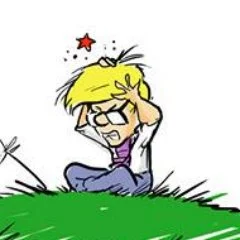

I understand what you mean about the comparison between AI chatbots and video games (or whatever the moral panic du jour is), but I think they’re very much not the same. To a young teen, no matter how “immersive” the game is, it’s still just a game. They may rage against other players, they may become obsessed with playing, but as I said they’re still going to see it as a game.
An AI chatbot who is a troubled teen’s “best friend” is different and no matter how many warnings are slapped on the interface, it’s going to feel much more “real” to that kid than any game. They’re going to unload every ounce of angst into that thing, and by defaulting to “keep them engaged”, that chatbot is either going to ignore stuff it shouldn’t or encourage them in ways that it shouldn’t. It’s obvious there’s no real guardrails in this instance, as if he was talking about being suicidal, some red flags should’ve popped up.
Yes the parents shouldn’t have allowed him such unfettered access, yes they shouldn’t have had a loaded gun that he had access to, but a simple “This is all for funsies” warning on the interface isn’t enough to stop this from happening again. Some really troubled adults are using these things as defacto therapists and that’s bad too. But I’d be happier if lawmakers were much more worried about kids having access to this stuff than accessing “adult sites”.


I probably didn’t explain well enough. Consuming media (books, TV, film, online content, and video games) is predominantly a passive experience. Obviously video games less so, but all in all, they only “adapt” within the guardrails of gameplay. These AI chatbots however are different in their very formlessness - they’re only programmed to maintain engagement and rely on the LLM training to maintain an illusion of “realness”. And because they were trained on all sorts of human interactions, they’re very good at that.
Humans are unique in how we continually anthropomorphize tons of not only inert, lifeless things (think of someone alternating between swearing at and pleading to a car that won’t start) but abstract ideals (even scientists often speak of evolution “choosing” specific traits). Given all of that, I don’t think it’s unreasonable to be worried about a teen with a still developing prefrontal cortex and who is in the midst of working on understanding social dynamics and peer relationships to embue an AI chatbot with far more “humanity” than is warranted. Humans seem to have an anthropomorphic bias in how we relate to the world - we are the primary yardstick we use to measure and relate everything around us, and things like AI chatbots exploit that to maximum effect. Hell, the whole reason the site mentioned in the article exists is that this approach is extraordinarily effective.
So while I understand that on a cursory look, someone objecting to it comes across as a sad example of yet another moral panic, I truly believe this is different. For one, we’ve never had access to such a lively psychological mirror before and it’s untested waters; and two, this isn’t some objection on some imagined slight against a “moral authority” but based in the scientific understanding of specifically teen brains and their demonstrated fragility in certain areas while still under development.